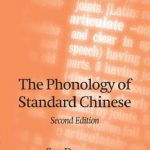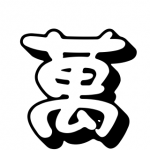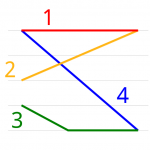Articles in the ‘Science and research’ category Page 5
-
Learning how to learn Chinese through self-experimentation
Rigorous scientific research typically requires large sample sizes, otherwise it isn’t possible to draw any conclusions about the population at large, which is the goal of most studies. However, experimenting with yourself as the only participant might not be relevant for other learners, but it’s highly relevant for you. This article is about how to use self-experimentation to learn Chinese.
Read → -
Learning styles: Use with caution!
Looking at popular literature about learning styles, it looks like the use of learning styles is based on solid science. This isn’t the case and many scientists dispute the claims made by authors and educators favouring teaching based on learning styles. In this article, I discuss learning styles critically, but also provide some thoughts on how they can be used productively.
Read → -
Review: The Phonology of Standard Chinese
Duanmu San’s “The Phonology of Standard Chinese” is by far the best introduction to Mandarin phonology that I’m aware of. It’s mostly useful for people who like phonology or are already at an advanced level and want to add a theoretical edge. This book contains tons of interesting material, all well-presented and well-argued.
Read → -
The 10,000 hour rule – Blood, sweat and tears
The 10,000 hour rule is quite simple. It states that it takes roughly 10,000 hours of practice to become really good at something. The most important lesson here is that talent is far less important that people think. Even towering geniuses work very hard. Blood, sweat and tears are what counts in the end, not talent.
Read → -
Use the benefits of teaching to boost your own Chinese learning
Teaching is a very powerful way of learning. Explaining complicated topics with simple language helps you grasp them and remember them. If you don’t have someone to teach, you can imagine that you have and teach yourself. Making simple explanations explicit works almost as well as real teaching.
Read → -
The tones in Mandarin are more important than you think
Tones are more important than most people think. Just because native speakers reduce tones and speak quickly, it doesn’t mean that you can do the same and get away with it. Don’t be fooled by people who say that tones in Chinese aren’t as important as all that, because they’re wrong.
Read → -
Triggering quantum leaps in Chinese listening ability
Listening ability is mostly a matter of practise, but the level of difficulty of the input also matters. My theory is that most people listen to Chinese that is too easy for them and would benefit from challenging themselves more, even if they spend the same amount of time practising listening ability.
Read → -
About opening doors and the paths beyond
Hacking Chinese is about opening doors and showing the paths beyond, but what does that mean? Why is it useful to read other people’s advice? In this article I argue that it’s essential to familiarise oneself with many different methods, not to find the correct way of doing something, but to find better ways and provide contrast to one’s own learning process.
Read →






